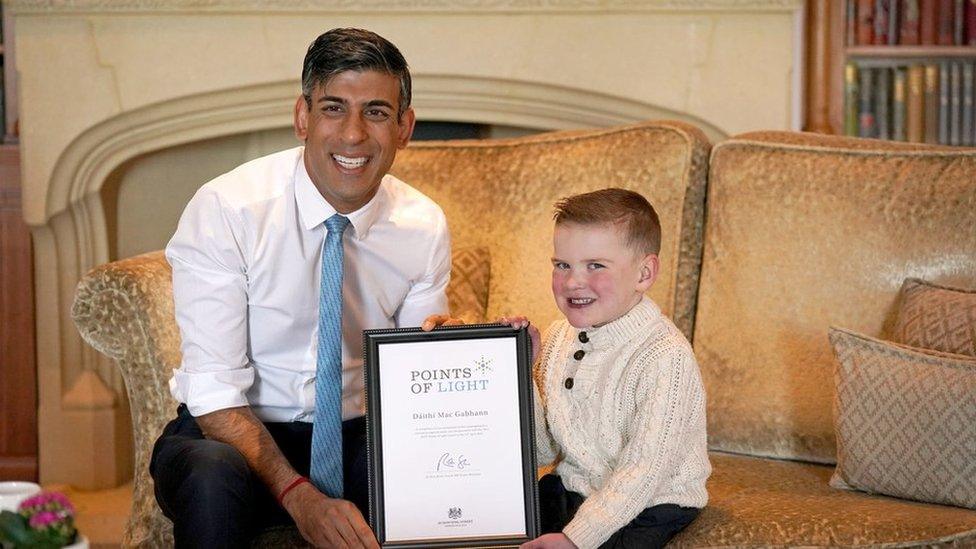Organ donation talk needed, says three-time liver recipient
- Published
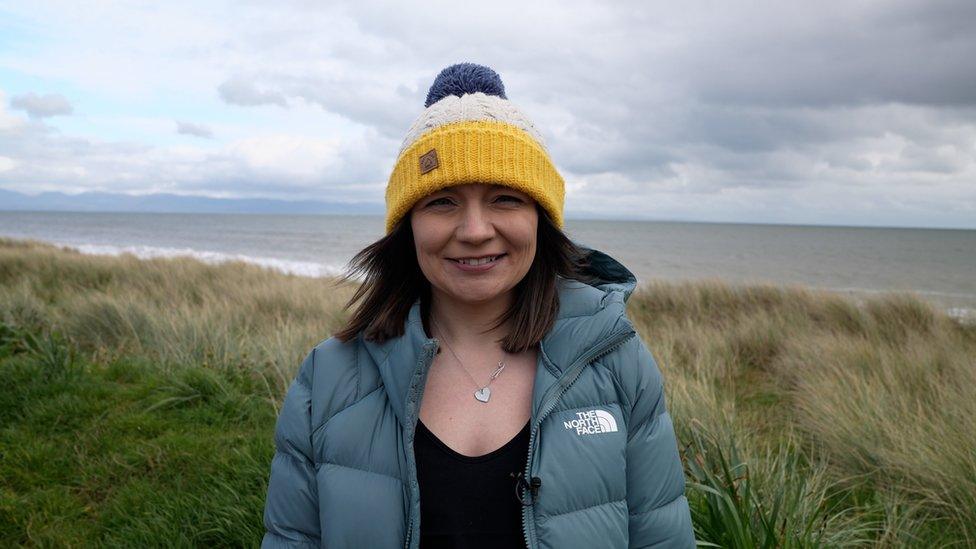
Lois Owens said she wants more families to have conversations about organ donation because "no-one knows what's around the corner"
A woman who had three liver transplants says it is still "as important as ever" for people to talk about organ donation.
Lois Owens, 30, from Pwllheli, Gwynedd, said she was "extremely lucky" to receive an organ after needing an emergency procedure.
Figures show Wales has the lowest donation rate of all the UK nations.
A Welsh Government spokesperson said it had always encouraged families to talk about organ donation choices.
Ms Owens said despite the opt-out system, it is not always enough as families can still block the process.
She wants more people to have that conversation with loved ones since "we never know what's around the corner".
Ms Owens was born with a genetic condition which led to cirrhosis of the liver, and by the time she was 14 she had already had two transplants.
The third one in 2021 was a "completely unexpected" emergency, and rather than having to wait for years as she had for her first two transplants, an organ had to be found quickly.
"They had started to say that they weren't sure whether they were going to get me a liver in time.
"Hearing that is quite a blow, quite scary, but also now makes me feel incredibly fortunate," Ms Owens said.
Ms Owens spent four months in Ysbyty Gwynedd and King's College Hospital, London - an "awfully isolated, awfully traumatic" experience due to Covid restrictions.
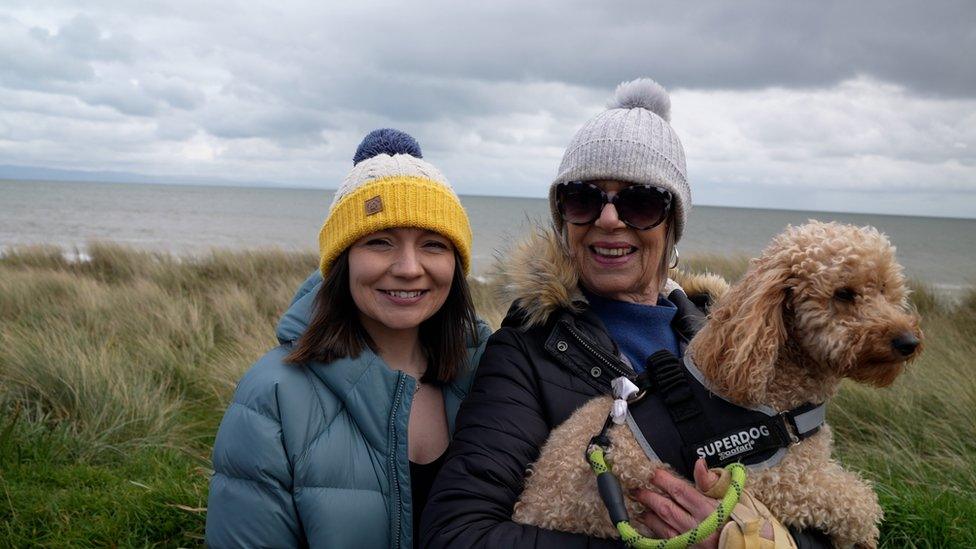
Ms Owens said: "The first thing I did, and it was 20:00 at night when I got home, was take the dog for a walk and go down to the beach with Mum"
Since the transplant Ms Owens said she now lives a "very normal life", and that she feels "incredibly healthy and lucky".
But soon after, her mind also turned to the person whose organ she received.
She hasn't been given any information about the person or their cause of death, only that she was a 32-year-old woman.
"When you receive someone's liver, or another organ, there's definitely that sense of connection with them," Ms Owens said.
"There's an element of guilt as well, and I've spoken to others who've had a transplant who feel the same.
"It's important to acknowledge that, and at least give the opportunity for that family to know a bit more about you."
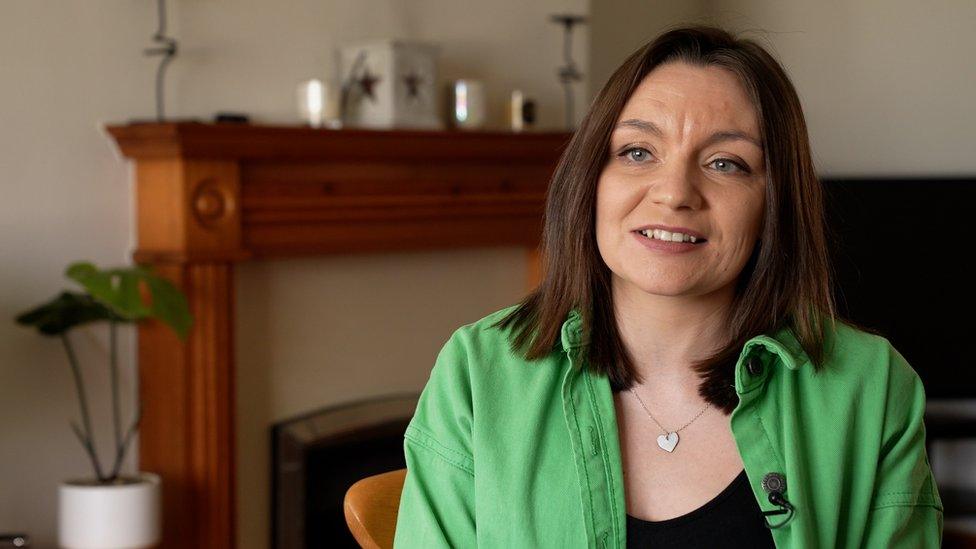
Ms Owens said some people who receive organs feel a "sense of guilt that you need to make the most of your second or third chance"
Since Wales introduced their organ donation law in 2015 there has been a gradual increase in the number of people on the organ donation register, which is now at 43%.
But with England and Scotland having introduced similar laws in 2020 and 2021 respectively, the organ donation rate in the other UK nations is now around 50%.
At one point in 2018-19 the number of people in Wales consenting to organ donation reached 77%, the highest in Britain by far.
This figure has now dropped to 64%.
A Welsh government spokesperson said it led the way on introducing deemed consent, which "helped improve consent rates around organ donation".
"The ability to register a decision on the Organ Donor Register is also still there. The more people who talk about the issue, the better."
Consultant Dr Dai Samuel is an ambassador of the British Liver Trust, and said recent changes in the law may mean some people are complacent about the issue.
"The law has perhaps made some people think that they don't need to talk about it now, because it's automatically presumed that you're willing to donate your organs," he said.
"Secondly it's still a bit of a taboo subject, especially in Wales and perhaps more so in the Valleys, like where I am in Merthyr, where people generally avoid talking about death.
"Thirdly, the demand for organ transplants is going up.
"I work as a consultant hepatologist, and we see liver disease on the up, cirrhosis on the up, the number on transplant waiting lists going up every year, especially now coming out of Covid."
Dr Samuel said drinking problems made worse during the pandemic could lead to an even higher demand for liver transplants in the future.
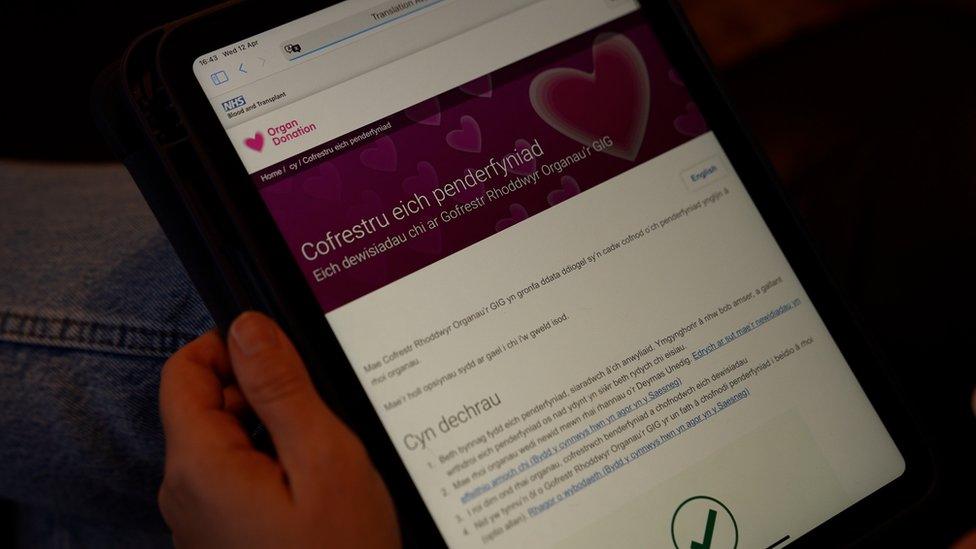
According to the latest figures for 2021/22 Wales's rate has fallen below all the other UK countries for the first time in seven years
Making sure as many people as possible have actively consented to organ could be crucial Dr Samuel said.
"When you've just lost a loved one, or are about to, that's a really difficult time to be making such decisions.
"But also for the patient who might be waiting for a liver, it's so hard for them being on that list, living with the possibility that they could die before getting that transplant.
"So it's very difficult psychologically for the patient themselves, their family, and the family of the person donating the organ.
"But it's such a gift to the patient… and I'm quite lucky to be part of a system that can give someone a new lease of life when they were perhaps hours from death," he said.
Ms Owens said actively signing up to the organ donation register means more control over which organs to donate, and the circumstances.

REUNION HOTEL: If you could reunite with one person from your past, who would it be?
DARE TO DANCE: 'When I dance I feel like I can overcome anything'

Related topics
- Published14 March 2023
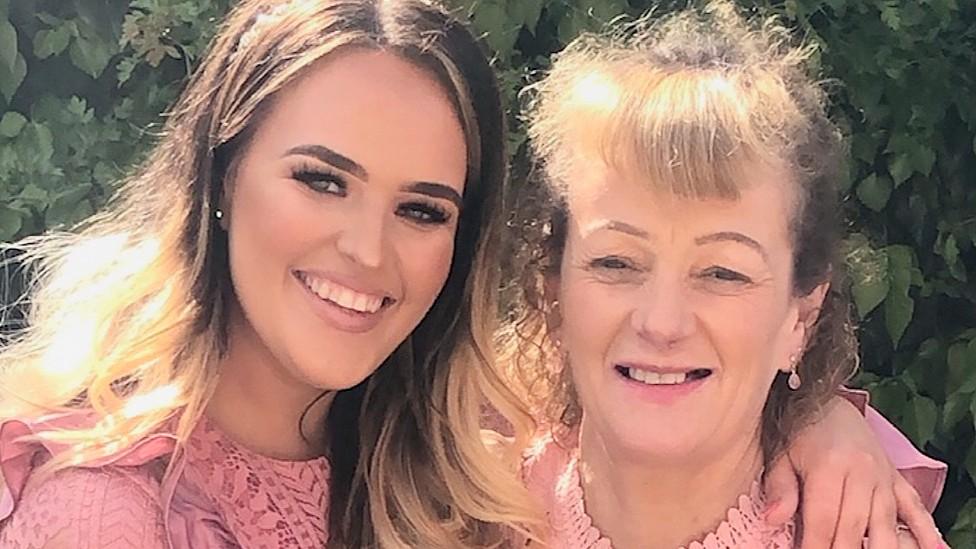
- Published1 January 2023
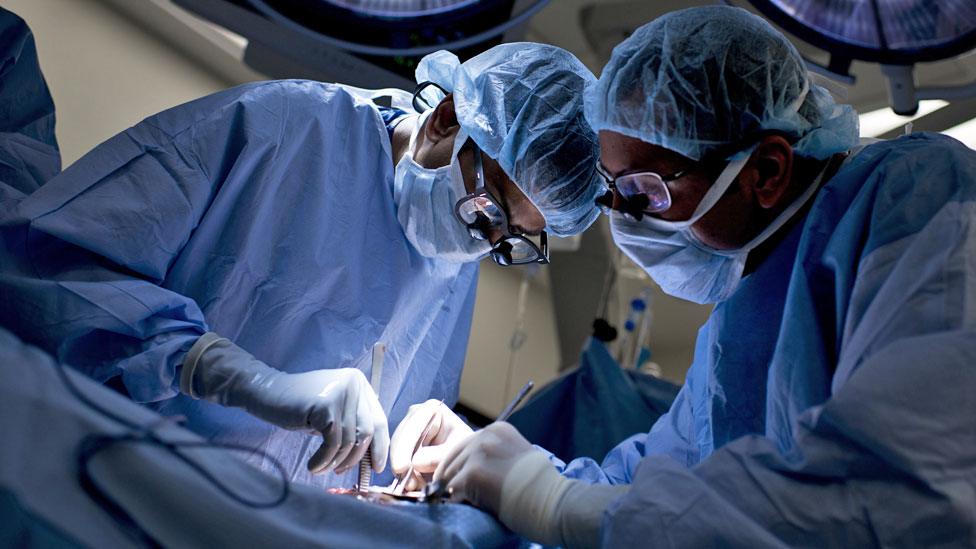
- Published13 April 2023
